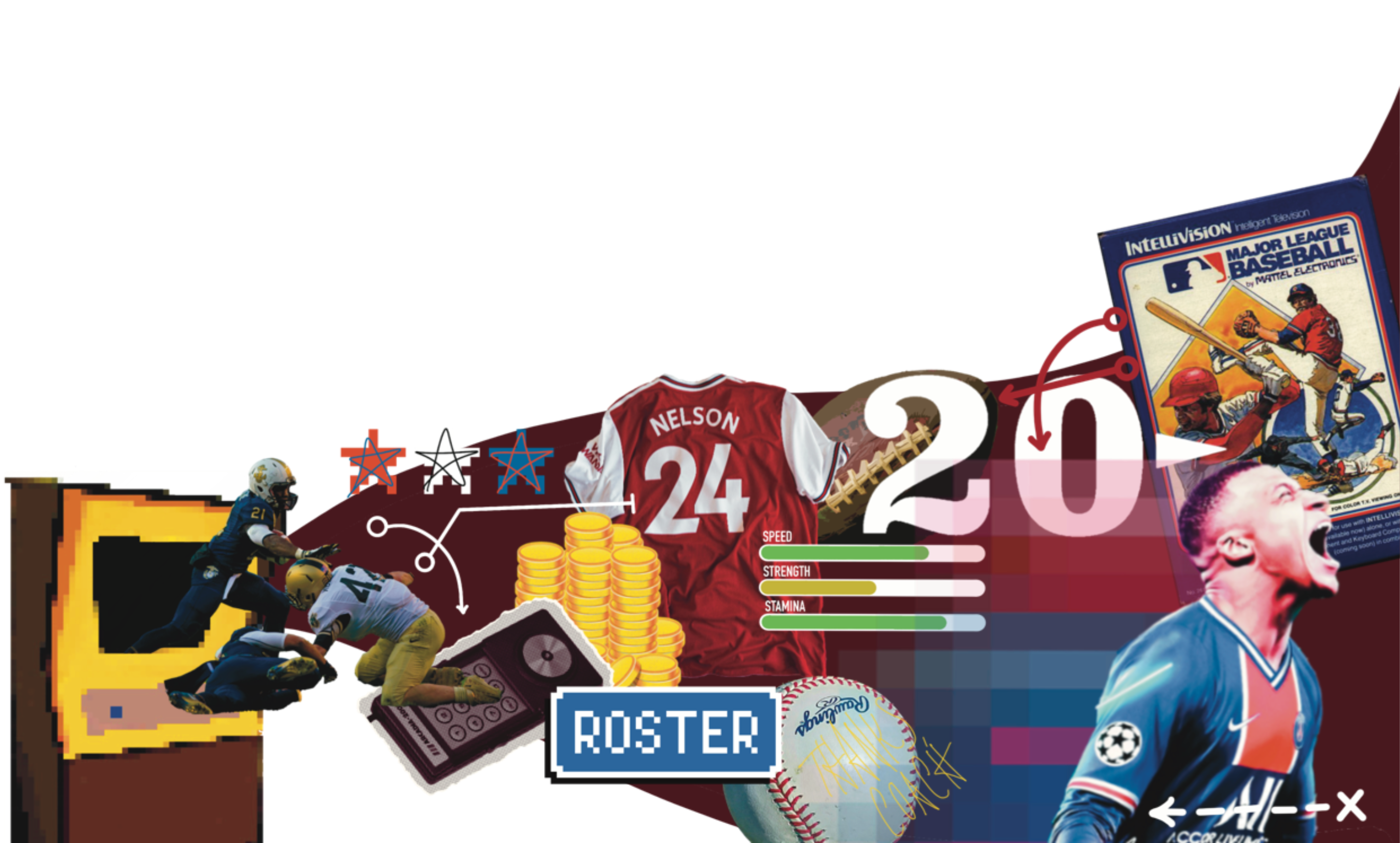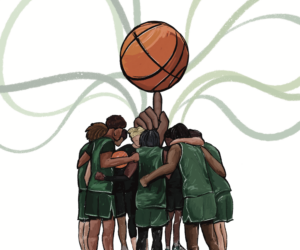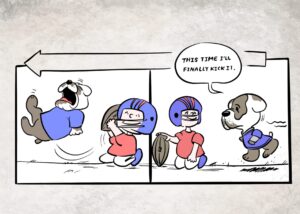College Football (2024), the next addition to the Electronic Arts (EA) NCAA football franchise and its first since 2013, will release this summer after a long hiatus due to concerns about using college athletes’ likenesses. Its return has been highly anticipated by sports and video game fans alike, and their undying loyalty represents the strong following that persists for sports video games today.
From Pong to Madden
Sports video games had to start somewhere. In fact, the first-ever popular video game was technically a sports game: Pong (1972).
Pong featured a ball bouncing back and forth between paddles in an emulation of table tennis. It was a smash hit in arcades as well as homes, with dozens of home consoles being released in the mid ’70s dedicated exclusively to the title.
By the late 1970s, the world began to see other sports being reproduced on the Atari 2600 console, with these games being given straightforward titles like FOOTBALL (1978), HOCKEY (1981), or GOLF (1980). They weren’t named after a league, or even a coach. There were no players on the cover art. There were no problems with images and likenesses because everyone was a stick figure, and extra information like names took up too much space on a game cartridge.
The first real-life references appeared on the rival Intellivision console, when Mattel developed sports games in the late 1970s that included professional leagues like the NBA, NFL, and NHL in the title. Players’ names didn’t make an appearance until One on One: Dr. J vs. Larry Bird was released for the Apple II computer in 1983, a game which pitted Julius Erving against Larry Bird in—you guessed it—one-on-one basketball.
By the time Tecmo Bowl (1989) and Tecmo Super Bowl (1991) were released for the Nintendo Entertainment System (NES), game companies had acquired the licenses to players’ names and also made an attempt at replicating their abilities. This famously resulted in defenses being unable to stop former Raiders running back Bo Jackson from scoring a touchdown, or even running back and forth across the field until time ran out on the clock.
Thanks to the advances of Tecmo Bowl and other licensed games like NBA Jam (1993), sports video games became firmly in the mainstream by the ’90s and 2000s, and the success of titles like Madden NFL (1988), FIFA (1993), and the NHL (1991) series, all of which began in the late 1980s and early ’90s, firmly put EA at the forefront of sports video game development.
In an effort to hold a further grip on the market, EA also acquired a license to the NCAA and began to develop games featuring college sports teams with the same programming and format of the pro-sports games. But unlike the many pro leagues with video games, the NCAA didn’t allow any reference to the names or likenesses of athletes, so players would be given random names or simply a number, such as QB #10.
In the modern era of Name, Image, and Likeness (NIL) deals, student athletes are now permitted to be compensated for their image, which allows companies like EA to pay athletes for inclusion in their games. As a result, College Football is now back on the sports gaming map. This is a cause for celebration, but EA still must reckon with other problems brought on by modern sports games.
Modern Problems
Madden today is unrecognizable from its earlier iterations. First, the graphics mirror reality, leading me to believe the Cowboys were playing on a random Wednesday night. Second, and more controversially, the games added new modes that can be financially predatory, especially for younger players.
During the 2010s, Madden introduced “Madden Ultimate Team,” a game mode where players collect cards of their favorite athletes and compete against others online. While players can spend time earning enough virtual currency to buy card packs, they can also spend real money for a higher chance of securing their favorite players.
As a result, a California class action lawsuit in 2020 charged EA for violating gambling laws, as the odds for these packs were not specified, and amounted to virtual slot machines.
Madden and FIFA have since restructured their card pack system, but players can still spend exorbitant amounts on virtual currency trying to draw special athletes like Travis Kelce. For example, many YouTubers post videos spending over $10,000 on packs, trying to buy their golden team.
Much like the leagues they represent, games struggle to balance simulating a league and its politics without isolating players. Despite an extensive selection of jerseys, NHL 23 (2022) does not allow players to equip the league’s pride collection, special jerseys that celebrate the LGBTQ+ community.
However, some games are more inclusive. Madden continues to have “End Racism” on both the in-game helmets and stadiums, in line with the NFL. Since these games are licensed by the league they can often reflect real-world social tensions, and potentially shape how players think about the world.
From Console Generations to Family Generations
The long history of sports games means that parents who played older titles can now pass down their passion to their children. My father and I used to play NCAA Football 08 (2008) and MLB 2K12 (2012) together every weekend, sharing memories of when he played past titles during the ’90s. I always wanted to get good enough to beat him! While he had an advantage in the old, I would always beat him in Wii Sports.
Games like Retro Bowl, a spiritual successor to Tecmo Bowl, help bring a new generation to the old. With its accessibility as a mobile game, the game caught fire, surpassing 3.4 million downloads in less than two years.
Sports video games are a juggernaut. In November 2023, sports made up four of the 10 highest selling games in the United States. The return of NCAA Football feels like the coming of the messiah, entering sports games into a new era. I, like many others, have stuck with the old NCAA 11 (2010) for over a decade while waiting for this moment. College Football (2024) will bring more people into the new generation, and I personally cannot wait to play ball.





